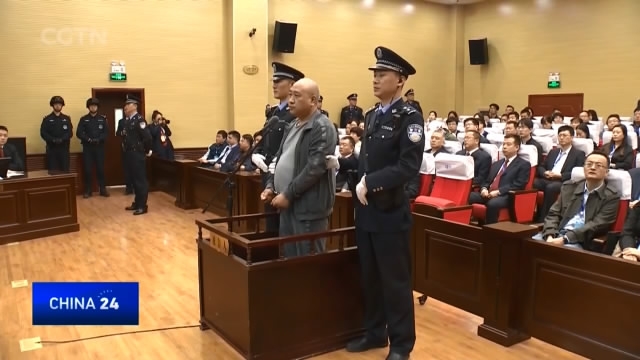
21:35, 30-Mar-2018
Serial Killer Case: Chinese 'Jack the Ripper' sentenced to death

A serial killer dubbed China's Jack the Ripper has been sentenced to death, three decades after the first murder. The 54-year-old man earlier plead guilty to raping and murdering 11 women and girls in northern China. Rory Cohen has more.
A decision has finally been made putting an end to three decades of fears of young Chinese women. Serial killer Gao Chengyong was sentenced to death at the people's intermediate court of Baiyin in northwest China's Gansu Province. Gao said he would not file an appeal. The response was immediate and emotional.
A married man. A father-of-two, living just like anyone else. Between 1988 and 2002, the serial killer hunted women in Baiyin, as well as Baotou in Northern China's Inner Mongolia. Known for the grisliness of his murders, he was one of China's most feared serial killers. People compared him with east London's Victorian-era serial killer, the Jack the Ripper.
WANG HUMIN, DEPUTY DIRECTOR BAIYIN'S PROSECUTING AUTHORITY "His motive was complex and the purpose of his crimes was also diverse. All his actions are coherent. This is psychologically abnormal."
Clues were difficult for police to follow. The case had been a top priority for law enforcement for a long time. Since 2004, prosecuting authorities launched a joint investigation, and later started using the latest technologies to re-examine DNA and biological evidence.
LIU YAN JOINT INVESTIGATION MEMBER "Finding the criminal suspect throughout the country is not an easy task. But advanced technology can help us find the tree in a vast forest."
He got away with it for so long but couldn't get away with it forever. Gao was arrested in August 2016 at his own grocery store, following a DNA test stemming from an unrelated crime committed by one of his relatives. He confessed to all 11 murders during his trial last July after almost 30 years on the run.
WANG HUMIN, DEPUTY DIRECTOR BAIYIN'S PROSECUTING AUTHORITY "We now give our account to the victims, so that the deceased can rest in peace. For Gao Chengyong, he ought to take responsibility for what he has done." Rory Cohen, CGTN.

SITEMAP
Copyright © 2018 CGTN. Beijing ICP prepared NO.16065310-3
Copyright © 2018 CGTN. Beijing ICP prepared NO.16065310-3